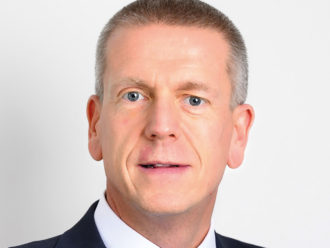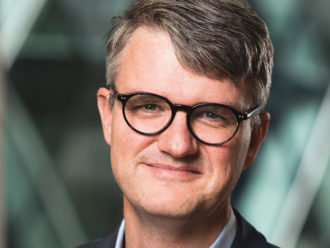What else is in the main scheme’s matching portfolio?
As part of the matching assets, we’ve done things like ground rents and long-lease property. We’ve looked at whether we can add value from assets that will have matching characteristics. Can we find alternatives to index-linked gilts, because they are so costly, that maybe don’t give us a perfect mark-to-market match, but over time will give us the cashflow matching characteristics?
So we’ve got about £180m in long-lease property, spread across funds and direct ownership. We’ve got commitments of £180m in two ground rents. We’ve done some forward-funded deals, so there are a number of properties that are being constructed that we’ve effectively agreed to.
It is then mainly index-linked gilts, and some nominal gilts. We’ve got about £100m of what we would call ‘quasi-government’, the likes of Network Rail and a couple of other triple-A agencies that have issued sterling index-linked gilts.
We also have about £400m in corporate bonds. They are seen as shorter-term matching assets because, typically, your average corporate bond has an eight to nine-year life.
What are the advantages of ground rents and long-lease property for matching purposes?
You’ve got 25 to 35-year cashflows on some of these long-lease properties, with fiveyearly annual steps linked to inflation. So you know the income is going to increase with inflation. I think something like 70% of our ground rents are linked to RPI.
The bulk of the others tend to be these doubler arrangements, where the ground rent doubles every 25 years. So again, they’re not perfect hedges, but they’re reasonable.
How has the scheme’s return-seeking portfolio changed?
In 2006, at the point when the fund started diversifying into other assets, like infrastructure, it was 70% equities and 30% bonds, mainly corporate bonds. But the exposure to public equities is now about 23%, and we have exposure to a whole range of private market investments. We certainly see, net of all fees, that they’ve generated more value than being invested in public equities. The fee drag is painful, but it’s the net position, ultimately, that you need to think about. The trustees certainly challenge on the fee base.
I notice you have not mentioned hedge funds among the alternatives…
The trustees feel that there isn’t as much value in those, and they feel they’re too expensive; so that classic 2-and-20 they hate. We’ve seen some interesting hedge funds, but I don’t see hedge funds as an asset class. My view has been, “What does the fund actually do?” Well, a lot of funds buy and sell equities, so they’re called a ‘hedge fund’, but what do they do? Well, they may be long/short equity, or they may be momentum players of equity or something. But ultimately, a lot of them are trying to buy equity risk.
How have you played the heightened macro and political risks of late?
Ultimately, we have this long-term objective and it’s about moving along with that. Everything else – Brexit, Trump – yes, they look horrible in some senses, but in other senses they might turn out to be good. You don’t know. Are they going to change my long-term strategy? Absolutely not. So our approach is very much, “Do we think this can make money over the long-term? Do we believe in this team? Yes. Well, we’ll stick with it and follow it through.”
We saw Brexit coming, but we didn’t do any activity. We talked about doing something around the US election, knowing that it could be followed by a potential FOMC rate increase and the Italian referendum. But ultimately we decided not to because it fundamentally won’t actually change.




